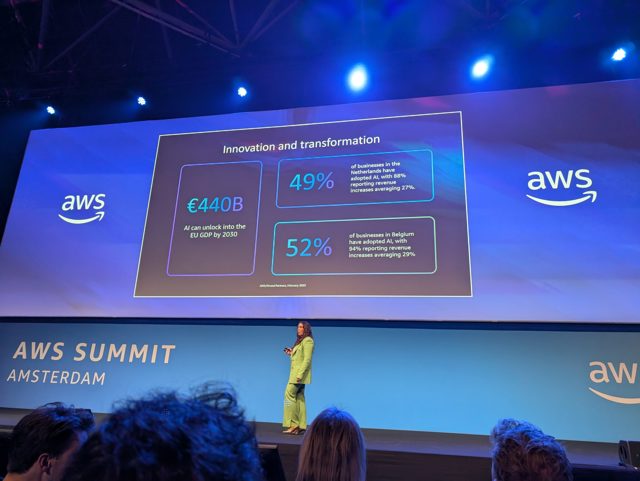< Back to news
Dutch students read less and less. This can cause them to experience problems at school and in society. Factors such as reading motivation and available support are important predictors of how well children read. Social robots are a promising tool in this regard, as previous research has shown. 


12 November 2023
Fighting the reading crisis with a reading robot
Three researchers from VU Amsterdam are starting a pilot with a reading robot for primary school students. They want to test whether robots can help increase children's reading skills.
The pilot was launched on 12 October at the Bosschool in Bergen, during the national Children's Book Week.
Dutch students read less and less. This can cause them to experience problems at school and in society. Factors such as reading motivation and available support are important predictors of how well children read. Social robots are a promising tool in this regard, as previous research has shown.
Robot bookworm
The Robot Bookworm helps pupils find a suitable book that they can read independently. The robot has weekly conversations with the children about the reading process and the content of the book. The questions the robot asks are adapted to the content of the book and the interests and reading level of the pupil.
Interdisciplinary
The reading robot is a project of the Network Institute, the interdisciplinary research hub of VU Amsterdam. Mike Ligthart (Social AI), Lisa van der Sander (Pedagogical and Educational Sciences) and Nina Sangers (Language, Literature and Communication) are involved as researchers. They expect that the personalized approach will promote pupils’ reading motivation and ultimately their reading comprehension.
Personalized interaction
In the first phase of the project, the scientists will talk to students, teachers and library staff to map out the ideas and wishes about the use of reading robots at school. They also investigate the technical possibilities to personalize the interaction between child and robot. In the spring of 2024, participating primary school students will have the weekly conversations about their reading book with the robot, during which reading comprehension and reading motivation will be monitored.
Calculating robot
Artificial Intelligence scientist Ligthart has been researching the development of sustainable and inclusive child-robot interactions for some time. He specifically focuses on the question of how a robot can maintain a relationship with a child through a narrative conversation. Earlier this year he showed that children's arithmetic performance improved with the help of Hero, the math robot.
This article can be read on the Vrije Universiteit Amsterdam website.
Vergelijkbaar >
Similar news items

April 16, 2025
AWS: Dutch businesses are adopting AI faster than the European average
New research from AWS shows that Dutch businesses are rapidly adopting AI—at a rate of one new implementation every four minutes, well ahead of the European average.
read more >

April 16, 2025
Submit your nomination for the Dutch Applied AI Award 2025
Do you know or develop an innovative AI application? Submit it now for the 2025 Dutch Applied AI Award, presented at the Computable Awards.
read more >

April 16, 2025
UK government tests AI to predict murders
The UK government is developing an AI system that could predict who is most likely to commit a serious crime. Critics call the project dangerous and discriminatory.
read more >